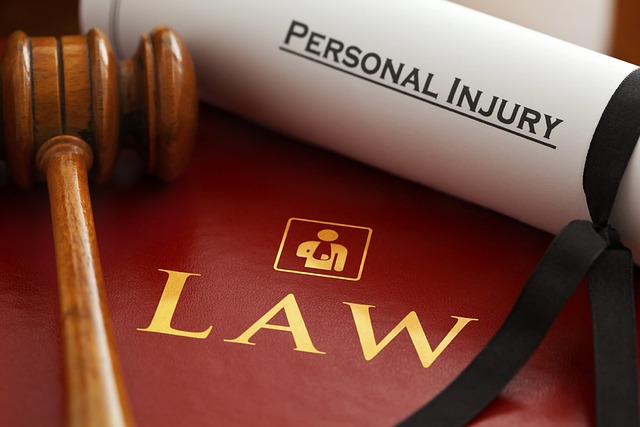California Personal Injury Law

In California, if you get hurt because someone else did something wrong or didn’t take enough care, you have the right to ask for money to make up for your injuries. This is called personal injury law. It’s important to know a few things if you want to take legal action in California.
One important thing is the “statute of limitations.” That’s a fancy way of saying you have a certain amount of time to file a lawsuit. In California, you usually have two years from the time you got hurt to go to court. But there are some exceptions, like if you were too young or couldn’t understand things when they happened.
In California, personal injury law helps people who have been hurt because someone else was careless or did something wrong. If you want to take legal action, you usually have two years from the date of the accident to file a lawsuit. After that, it might be too late. But there are exceptions, like if you were too young or unable to understand things when it happened, or if the person you want to sue left the state.
To start a lawsuit, you need to go to a special court called a superior or trial court. You have to give the court a document called a complaint. This explains what the other person did wrong, and a summons to let them know about the lawsuit. It’s important to know that the time limit applies only to cases filed in court, not insurance claims.
If you’re dealing with a personal injury case, it’s a good idea to talk to a personal injury lawyer. They can help you understand the legal process and what to do next.
What Is a Personal Injury Lawsuit?

A personal injury lawsuit is a legal action taken by an individual who has suffered physical, emotional, or financial harm due to the negligence, recklessness, or intentional actions of another person, entity, or organization. Personal injury lawsuits are a means for the injured party, known as the plaintiff, to seek compensation for the damages they have incurred as a result of the incident.
Personal Injury Lawsuit
In a personal injury lawsuit, the plaintiff asserts that the defendant’s actions or failure to act appropriately caused their injuries or losses. The injuries can stem from various incidents, such as car accidents, slips, and falls, medical malpractice, product defects, workplace accidents, or any situation where negligence or wrongdoing is involved.
To initiate a personal injury lawsuit, the plaintiff typically consults with a personal injury attorney . The attorney evaluates the circumstances, gathers evidence, and determines the legal basis for the claim. They help the plaintiff navigate the legal process and advocate for their rights throughout the proceedings.
Once you file a lawsuit, the legal process starts rolling. It involves different stages where everyone investigates, negotiates, and, if needed, goes to court. The goal is to find a fair solution for the person who got hurt.
First, both sides gather evidence and facts by investigating the case. Then, they might try to reach an agreement through negotiations or mediation. This is called a settlement. It’s like finding a compromise where the injured person gets the right amount of money.
But if they can’t agree on a settlement, the case goes to trial. That’s when a judge or a group of regular people, called a jury, decide what happens.
This can include money for medical bills, wages they lost because of the injury, and the pain they suffered. Any damage to their things, and the cost of getting better through rehab. The amount of money awarded depends on how serious the injuries are and how much they’ve affected the person’s life.
Remember, personal injury laws can be different depending on where you are. So, it’s really important to talk to a personal injury lawyer who knows the rules. They’ll guide you through the legal process and help you understand what’s happening every step of the way.
What is a Personal Injury Lawsuit? The Basics

If you’re injured because someone else acted carelessly, recklessly, or intentionally, you can fight back by filing a personal injury lawsuit. This is a way for the injured person to seek justice and hold the responsible party accountable for the physical, emotional, or financial harm they’ve suffered. It allows the injured party, known as the plaintiff, to seek compensation for their damages through the legal system.
What is a Statute of Limitations?
In personal injury cases, the statute of limitations specifies the deadline for initiating legal action after the injury or incident occurred. It varies depending on the jurisdiction and the type of case, and failing to file a lawsuit within this timeframe can result in the loss of the right to seek compensation.
Where are the Laws that Govern Personal Injury Cases?
These injury laws vary from place to place, and they outline the rules and rights of people seeking compensation for their injuries. These lawyers advocate for their client’s legal rights and work to ensure they receive fair compensation for their injuries and damages that determine liability, negligence, and the rights of injured parties. Additionally, court decisions and precedents contribute to the body of personal injury law.
What Must You Prove to Win a Personal Injury Case?
To win a personal injury case, the plaintiff generally needs to prove the following elements:
- Duty of Care: The defendant had a legal obligation to exercise reasonable care to avoid causing harm to others.
- Breach of Duty: The defendant breached or failed to fulfill their duty of care through negligence or wrongful actions.
- Causation: The defendant’s breach of duty directly caused the plaintiff’s injuries or damages.
- Damages: The plaintiff suffered actual damages, such as physical injuries, emotional distress, or financial losses, as a result of the defendant’s actions or negligence.
Get Professional Help With Your Personal Injury Lawsuit
Consulting with a professional personal injury attorney is crucial when pursuing a personal injury lawsuit. An experienced attorney can provide guidance, evaluate the merits of your case, gather evidence, negotiate with insurance companies, and advocate for your rights throughout the legal process.
Who Can You Sue Under Personal Injury Law?
Under personal injury law, you can sue individuals, businesses, organizations, government entities, and other parties who are responsible for your injuries or damages. The specific circumstances of the case will determine the potential defendants.
Noneconomic Damages in a Personal Injury Case
Noneconomic damages refer to intangible losses that cannot be easily quantified, such as pain and suffering, emotional distress, loss of consortium, or loss of enjoyment of life. In personal injury cases, plaintiffs may seek compensation for these types of damages in addition to economic damages (such as medical expenses and lost wages).
Looking To Speak With an Accident Lawyer? Find One Near You
To find a qualified accident lawyer in your area, consider researching reputable law firms, seeking recommendations from trusted sources, or utilizing online directories that specialize in connecting individuals with lawyers based on their location and practice area.
What Types of Legal Claims Arise Under Personal Injury Law?
Personal injury law encompasses various legal claims, including but not limited to car accidents, slips and falls, medical malpractice, product liability, premises liability, workplace accidents, and wrongful death. The specific type of claim depends on the circumstances and nature of the incident.
What Damages Can You Receive in a Personal Injury Claim?
In a personal injury claim, you may be eligible to receive various types of damages, including:
- Economic Damages: These are quantifiable financial losses such as medical expenses, property damage, lost wages, and future medical costs.
- Noneconomic Damages: These are subjective losses such as pain and suffering, emotional distress, loss of enjoyment of life, and loss of consortium.
- Punitive Damages: In rare cases involving egregious conduct, punitive damages may be awarded to punish the defendant and deter similar behavior in the future.
What is a Liability for Personal Injuries?
Liability refers to the legal responsibility of an individual or entity for causing harm or injuries to another person. In personal injury cases, it’s important to show that the person you’re suing, called the defendant, is responsible for the harm you’ve suffered.
What Makes A Good Personal Injury Lawyer

A good personal injury attorney possesses several qualities and attributes that contribute to their effectiveness in handling personal injury cases. Here are some key characteristics that make a good personal injury attorney:
Personal injury cases.
- Experience and Expertise: A good personal injury attorney has substantial experience in handling personal injury cases. They possess in-depth knowledge of personal injury laws, legal procedures, and the tactics commonly used by insurance companies and opposing counsel. Their expertise allows them to navigate the complexities of personal injury litigation effectively.
- Strong Negotiation Skills: Personal injury cases often involve negotiations with insurance companies, opposing parties, and their legal representatives. A skilled personal injury attorney knows how to advocate for their client’s best interests during settlement negotiations. They have strong negotiation skills to pursue fair and favorable compensation on behalf of their clients.
- Excellent Communication Skills: Effective communication is crucial in personal injury cases. A good personal injury attorney is an excellent communicator who can articulate complex legal concepts in a clear and understandable manner. They listen attentively to their clients, ask relevant questions, and keep them informed about the progress of their cases.
- Empathy and Compassion: Personal injury cases often involve clients who have suffered physical and emotional pain due to their injuries. A good personal injury attorney demonstrates empathy and compassion towards their clients, understanding the challenges they face and providing the necessary support throughout the legal process.
- Diligence and Attention to Detail: Personal injury cases require meticulous attention to detail. A good personal injury attorney conducts thorough investigations, gathers evidence, and examines the facts of the case carefully. They leave no stone unturned in building a strong case on behalf of their clients.
- Trial Experience: While many personal injury cases settle outside of court, some may proceed to trial. A good personal injury attorney is comfortable and experienced in the courtroom. They have strong advocacy skills and can effectively present the case before a judge and jury, if necessary.
- Client Focus: A good personal injury attorney prioritizes their clients’ best interests. They take the time to understand their client’s unique circumstances, goals, and concerns. They provide personalized attention and tailor their legal strategies to the specific needs of each client.
- Reputation and Professionalism: A good personal injury attorney has a solid reputation within the legal community and among their clients. They maintain high ethical standards, professionalism, and integrity in their practice. Positive testimonials and referrals from previous clients are indications of their reputation.
- Resources and Network: Personal injury cases often require access to various resources, including medical experts, accident reconstruction specialists, and investigators. A good personal injury attorney has an established network of professionals and resources that can strengthen their clients’ cases.
- Tenacity and Persistence: Resolving personal injury cases can be a lengthy and challenging process. A good personal injury attorney is tenacious and persistent in advocating for their client’s rights.
Conclusion
By doing thorough research, seeking recommendations, and scheduling consultations, you can find the right personal injury attorney who will fight for your rights and give you the best chance of getting the compensation you deserve.













